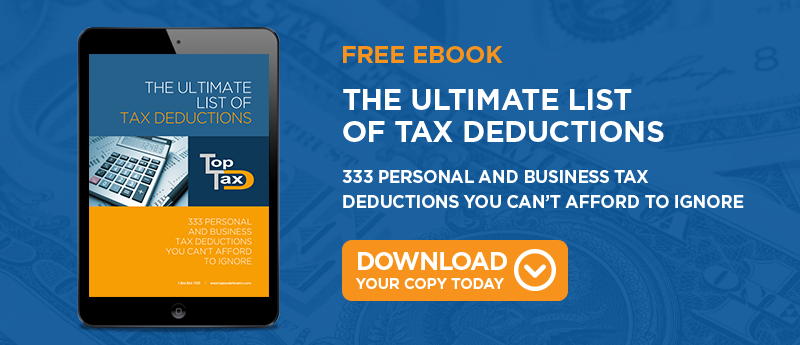
For business owners everywhere, the end of the year means that it is time to get ready to file their businesses’ tax returns. Rather than wait until the last possible minute, you can get ready now for tax filing season with some common sense advance planning. These strategies could help you maximize your deductions, lower your taxable income, and possibly increase the amount of your tax refund.
Choose an Appropriate Business Structure
If you have not already, you need to choose the best business structure for your company. Depending on your business, you can choose from one of four structures. These are:
- Sole proprietorship
- S or C corporation
- Limited liability company or LLC
- Partnership
All of these business structures carry different implications for your company’s tax returns. For example, a sole proprietorship is generally reserved for people who are business novices or just learning how to run their own company. If you are not sure of what structure to choose for your company, you should consult with a tax professional who can help you identify the best one to use for your business’s tax filing purposes.
Obtain an EIN
Another important tip that you need to take care of as early as possible involves getting an Employee Identification Number or EIN. An EIN takes the place on your tax returns of your Social Security number.
According to tax experts, it also reduces the likelihood of you becoming a victim of identity theft since your Social Security number will not be used on your business’s tax return. Moreover, an EIN is required for all business structures except for sole proprietorships that have no employees.
Look Over Your Books
One of the costliest and most troublesome mistakes that business owners make is forgetting to keep up their books throughout the year. As the end of the year approaches, you might need to scramble to get your books in order and find receipts to back up any deductions you plan to take on your taxes next year.
You can avoid this dilemma by using a high-quality and reliable bookkeeping program or outsourcing your bookkeeping to an accountant or CPA. You should also periodically review your books so you know how much income you are bringing in, what your expenditures are, and how much you might need to pay when you file your business’s tax returns.
This tip can be especially vital when you consider that the IRS tends to audit small business owners more often than private taxpayers. Failing to keep good records could trigger an IRS investigation of your business. Rather than scramble to find receipts and account for deductions, you can get ready to file your taxes and prepare for a possible audit by reviewing and updating your books now.
Make Quarterly Tax Payments
The IRS will require you to pay your taxes on a quarterly basis if you structure your business as a sole proprietorship, partnership, or S-corporation and you expect to make more than $1000 in income. If you are not sure of how much you should pay this quarter as the end of the year approaches, you are advised to review your company’s last year’s income, deductions, and tax credits. This information could help you figure out how much you need to pay for your quarterly taxes.
It is important that you pay at least 90 percent of what you owe this quarter if you want to avoid expensive IRS tax penalties. If you are not sure of how much you should pay or you do not know how to figure out your quarterly taxes, you should consult with a tax professional before filing your return.
Pay Your Self-employment Taxes
When you own your own company, you do not have the luxury of having an employer withhold your taxes for you. Instead, the IRS expects you to withhold and pay self-employment taxes for Medicare, Social Security, and other federal taxes.
When you file your business’s tax return, you should make sure you include these self-employment taxes before submitting it to the IRS. Failing to pay these taxes could result in you being audited and heavily penalized.
Hold Off on Receiving Payments
If possible, you should avoid receiving any cash payments as the end of the year approaches. According to the cash basis of accounting, you do not have to count payments as income until you actually receive them. You do not have to include them as income at the time of earning them.
With that, you could postpone receiving some payments especially those that are not vital to your business’s immediate survival until after the new year. By avoiding these payments as part of this year’s income, you reduce the amount of money on which the IRS will tax you. You also lower your tax liability this year.
Take Advantage of Last Minute Deductions
Before the end of the year, you have the opportunity to claim eligible deductions that will lower your tax liability to the IRS. Some of these last minute deductions to claim if your business qualifies include:
- Health care tax credit
- Deductions for self-employment health insurance
- Section 179 depreciation deduction
- Annual deduction for bonus depreciation
- Auto depreciation
- General business credit
You also can claim expenditures for your small business like:
- Office supplies
- Office furniture
- Equipment like computers and fax machines
- Startup costs
- Business-related expenses for meals, entertainment, business travel, auto repair and upkeep
If you plan on claiming any of these deductions, you should provide receipts and other documentation for them to avoid being audited or investigated by the IRS.
Increase Your Retirement Contributions
The IRS allows business owners to claim deductions on their tax returns for limited amounts of contributions they make to qualified retirement accounts like an IRA, 401 (k), or an SEP. If you do not have a retirement account, you can still open and contribute to one in December to qualify for these retirement contribution deductions.
Further, if you plan on filing a joint return with your spouse, you can also make a contribution on his or her behalf to get the credit. The IRS allows both spouses to claim separate retirement contributions on their joint tax return.
Choose the Right Tax Forms for Your Business
Finally, you need to choose the right tax forms to file with your business’s return. A sole proprietorship, for example, will most often use a Schedule C or Schedule C-EZ that is then attached to the business owner’s personal 1040.
If your business is structured as a partnership or LLC, you will need to fill out a separate information return for your business and then include part of your earnings in your personal earnings for the year. If you are not sure of what tax forms to use for your business’s return, you should consult with a skilled tax professional before you file.
These tips can help you get a head start on filing your business's tax returns. You also can maximize your deductions, increase your tax refund, and lower your tax liability to the IRS.




